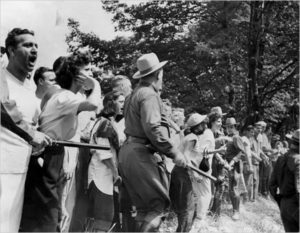
This summer marks the anniversary of a particularly ugly event in the area’s history that certainly won’t be celebrated, but should be remembered nonetheless. Over the course of two weekends in 1949, the Peekskill Riots represented the culmination of a wave of anti-Communism raised to a fever pitch, mixed with rampant racism and long-simmering anti-Semitism. The violence that left at least a hundred people injured and countless car windows smashed by rocks and the ensuing aftermath derailed the career of a brilliant artist and scarred the memories of many innocent bystanders gathered to support Civil Rights and enjoy an afternoon of music.
Many will no doubt see parallels of the events to the current political climate, including former Peekskill city historian Frank Goderre. “It’s the exact same thing that’s happening today,” he told the River Journal, comparing the riots to recent rhetoric.
Paul Robeson was a top professional football player in his youth, though he became much more famous as one of the country’s most celebrated African-American artists thanks to his rich bass-baritone and natural charisma. The son of a former slave-turned-preacher, Robeson overcame humble beginnings to become a highly respected Shakespearean stage actor, performing in front of packed audiences around the world. He was also an early star of the still-new technology of audio recordings, and his renditions of songs like “Ol’ Man River” became classics.
A true Renaissance Man, he was also a lawyer, a linguist, and a movie star. But what caused Robeson’s troubles seventy years ago in Westchester County was his stature as an outspoken critic of the United States government and his recently adapted Communist leanings following a trip to the Soviet Union. Though he performed three previous concerts in Peekskill in the summers before 1949 without incident, pro-Communist comments he’d made, some proven to be heavily misquoted, made their way into the local press before a fundraising performance for the Civil Rights Congress was to be held August 27 at Lakeland Acres in nearby Cortlandt Manor. In an editorial, Peekskill’s Evening Star encouraged citizens to stay away or protest, while veterans’ groups and the American Legion mobilized members to demonstrate.
On the day of the concert, before a single note was played, protests escalated into a full-fledged riot, with the angry mob piling wooden chairs at the venue into a heap that was lit into a bonfire. Some accounts claim effigies of Robeson were lynched, as well as a crucifix burned—a symbol of the Ku Klux Klan. Fellow prominent liberal activist and singer Pete Seeger was set to perform, and he later said he heard the Klan was directly involved. (His interview, as well as many others, can be seen on YouTube in Eileen Newman’s two-part documentary “The Robeson Concert & Riots in Peekskill.” Concert chairman, the novelist Howard Fast, also documented the events with the bestselling 1951 book “Peekskill USA.”)
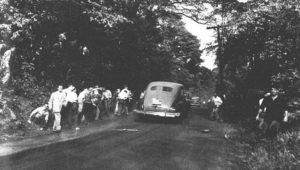
In the end, at least thirteen people suffered injuries and the event was cancelled. Signs reading “Wake Up, America! Peekskill Did!”—mirroring a similar slogan in Pre-World War II Germany supporting Nazi sentiment—appeared in store windows and on car bumpers. None of this deterred Robeson and the organizers, who rescheduled the event for September 4th in a new location close by, the Hollow Brook Golf Course. Various reports peg the number of concertgoers that day at between 15,000 and 25,000, though Goderre speculates it was lower. What’s not disputed is that the show went on without interruption, largely thanks to a human shield formed by local union members, left-wing veterans, and volunteers, and Robeson wrapped up the afternoon of music before 4:00 pm.
Given the relative peace, what happened next then seems all the more unsettling. As cars were leaving, mobs of protesters attacked in a hateful, vitriolic manner that was particularly shocking given not even women or senior citizens were spared. They hurled rocks at every passing vehicle, smashing out windows, including cars carrying Robeson and Seeger. People, mostly African-American or Jewish, were pulled out of their cars and beaten, and many cars were overturned and some lit on fire. Various accounts claim police not only turned a blind eye to the proceedings, but actually participated. Robeson later commented, “They were not merely attacking me personally; they were attacking the Negro people, the Jewish people, and all who stand for peace and democracy in America.”
Estimates of the injuries, some severe, range from 100 to 200, including some stabbings. But why this much hatred and physical violence? While racism and anti-Semitism undoubtedly played a large part, Goderre explained that blacks and Jews were caught up in the anti-Communism that gave birth to McCarthyism. “At the time, Republicans didn’t want blacks or Jews in their party, and neither did the Democrats,” he said. “The Communist Party was more welcoming of minorities, and many joined.”
Goderre also explained local economics played a part. Northern factories, like those in Peekskill, simply couldn’t offer labor as cheaply as businesses in the South, resulting in closings and high unemployment. Another reason behind the burst of anger was the choice for the original venue, with Lakeland Acres sitting within eyeshot of graveyards still being filled by bodies returning home from the war.
In 1950, the government demanded Robeson sign a “loyalty oath” before he could renew his passport to fulfill performance contracts. He refused, but many historians cite the Peekskill Riots as the beginning of his professional downfall. With the government closely monitoring and hate groups dogging him persistently, his career opportunities dwindled.
According to George Santayana’s oft-repeated aphorism, “Those who cannot remember the past are condemned to repeat it.” If for no other reason, preventing similar acts of hate is enough cause to consider these events committed on two summer weekends seventy years ago.


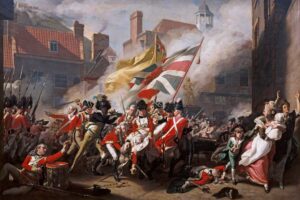
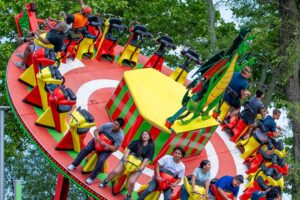
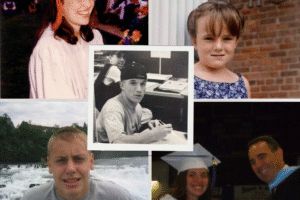
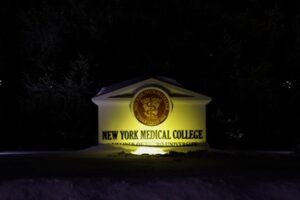

And I always thought Westchester Cy. was one of the ‘best’ cities in America. Who knew? Well, we all know now.
Most of the kids in my high school were Jews, Italians and African Americans. I had no idea that such horrible race riots took place just 20 years prior to our graduation. OMG!! I hope this part of history never repeats itself!!
Maybe reach out to former Peekskill city historian Frank Goderre. I think he’s on Facebook.
i WOULD LIKE TO BRING A BENEFIT SHOW OF AN ACCLAIMED ONE MAN BROADWAY SHOW ON PAUL ROBESON TO PEEKSKILL TO HONOR THIS EVENT . WHOM SHOULD i CONTACT TO MAKE THIS HAPPEN. http://www.paulrobesononemanshow.com
During this point in our history, although I’m no fan of communism, the or now, didnt the so call Reds help defeat Hitler’s crazed attempt to rule the world with anti American, hate for almost every ethnic group except pure German blood, which by the way, there never was and never will be? Thankfully the great city of peekskill no longer hold these sentiments and is currently a shining example of people of all religions, colors and creeds living peacefully, in many areas side by side. Finally we have one of the most well train police forces that will not tolerate or repeat mistake of our past.